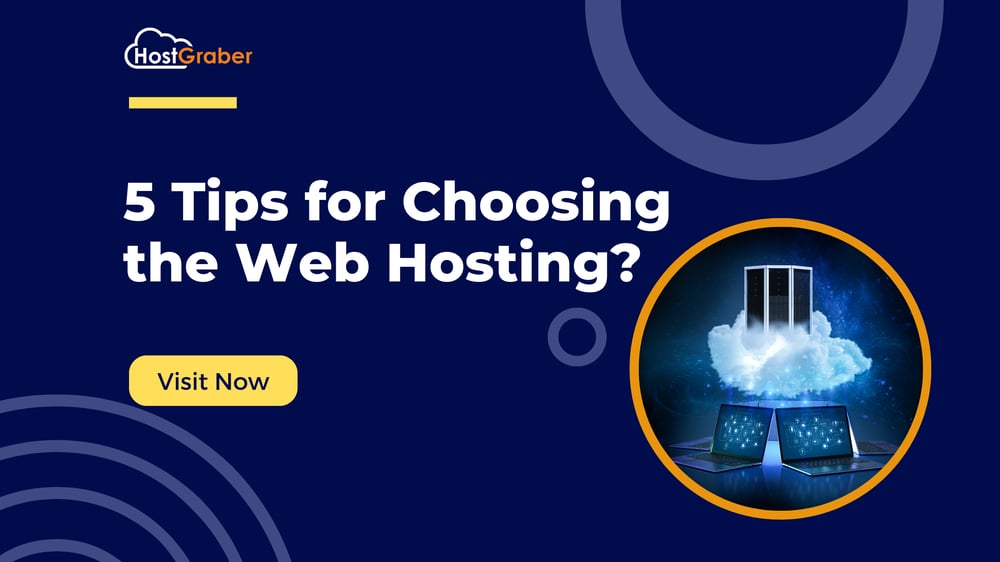5 Tips for Choosing the Best Web Hosting
Web Hosting Apr 23, 2025 5:57:11 PM HostGraber 3 min read

Your website’s success starts with the right foundation—web hosting. Whether you’re launching a blog, business site, or online store, choosing the best web hosting is crucial. A reliable hosting provider ensures that your site loads fast, stays online, and keeps your data secure.
With so many options available, how do you know which hosting service to trust? Here are five essential tips to help you make the right decision.
1. Understand Your Hosting Needs
Before you sign up with a hosting company, you need to assess what type of website you’re running. Is it a personal blog, a portfolio, or an eCommerce store?
- Shared Hosting is ideal for small websites with low traffic.
- VPS Hosting gives you more resources and is suitable for growing businesses.
- Dedicated Hosting offers full control and is best for high-traffic or complex websites.
- Cloud Hosting provides scalability and uptime reliability, perfect for startups or apps.
By understanding your website’s requirements, you can avoid paying for unnecessary features or choosing a plan that doesn’t scale.
2. Look for High Uptime and Speed Guarantees
A slow or offline website frustrates users and drives them away. That’s why server speed and uptime are two of the most critical factors to consider when picking the best web hosting provider.
Look for a host that guarantees at least 99.9% uptime. This means your website will remain accessible to visitors around the clock. Fast servers also improve user experience and help with search engine rankings.
Pro tip: Read independent reviews and performance tests to check real-world speed and uptime statistics.
3. Check the Quality of Customer Support
When your website goes down or you face a technical issue, you want immediate help. Choose a hosting provider that offers 24/7 customer support through multiple channels—live chat, email, or phone.
Test their response time before committing. Reach out with a simple question and see how fast and helpful they are. Reliable customer support can save you hours of stress in case of emergencies.
Remember, good support is part of what makes a provider stand out in the web hosting industry.
4. Evaluate Security Features
In today’s digital world, website security is non-negotiable. Your hosting provider should include built-in features to protect your site from threats.
Look for:
- Free SSL certificates
- Regular backups
- Malware scanning
- Firewall protection
These features are essential, especially if you’re handling sensitive customer data or online payments. The best web hosting companies take security seriously and provide tools to keep your website safe.
5. Compare Pricing and Renewal Rates
While pricing shouldn’t be the only factor, it’s important to understand what you’re paying for. Many hosting providers offer attractive introductory rates, but renewal costs can be significantly higher.
Make sure to:
- Compare what’s included in each plan (e.g., storage, bandwidth, domains)
- Check for hidden fees (like migration or backup charges)
- Understand the renewal terms and cancellation policy
Choosing a provider with transparent pricing and good value for money is key when investing in web hosting.
Final Thoughts
Selecting the best web hosting service doesn’t have to be complicated. By focusing on your website’s needs, performance, support, security, and pricing, you can find a provider that offers reliable, long-term value.
The right hosting can make or break your online presence. Take your time, do your research, and choose wisely—you’ll thank yourself later.
